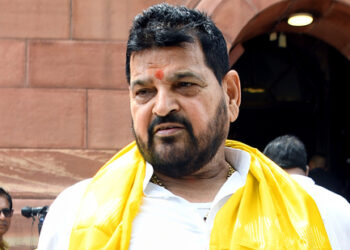In a stern message to West Bengal Chief Minister Mamata Banerjee, the Central Government has asserted that the existing legal framework in India is robust enough to address the state’s growing law and order challenges. The Centre emphasized that rather than clamouring for new legislation, the state should focus on the proper implementation of existing laws.
This response from the Union Government comes after Mamata Banerjee repeatedly called for the introduction of new laws to tackle what she described as escalating violence and criminal activities in West Bengal. The Chief Minister argued that the current legal provisions were inadequate to address the unique challenges faced by the state, necessitating fresh legislative measures.
However, the Centre has countered this narrative, stating that the existing laws, if implemented in both letter and spirit, are sufficient to maintain peace and order. The Ministry of Home Affairs (MHA) reportedly communicated this position to the West Bengal government, urging them to enhance the enforcement mechanisms within the state. The Centre highlighted that many states have effectively managed similar issues without the need for new laws, attributing success to diligent enforcement and administration.
The Centre’s message underscores a growing rift between the Union Government and the Mamata-led state administration, particularly on issues related to law enforcement and governance. Observers note that this could lead to further tension between the two entities, especially as West Bengal continues to grapple with incidents of violence and unrest.
While Mamata Banerjee’s government has yet to respond formally to the Centre’s remarks, sources within the state administration have indicated that the Chief Minister may seek further discussions with the Union Government to address her concerns. The ongoing discourse highlights the complex dynamics of Centre-state relations, particularly in politically charged regions like West Bengal.








 India
India












